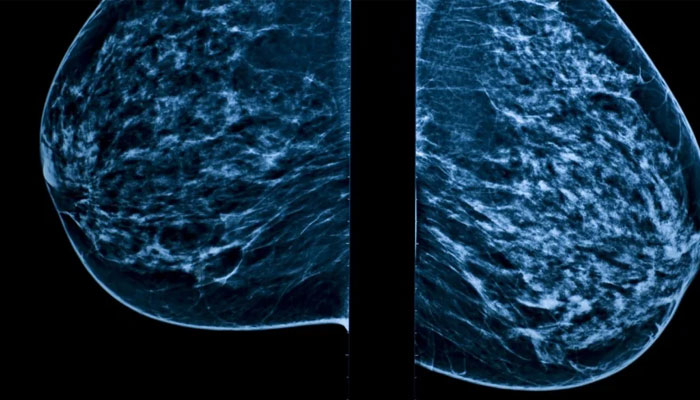New study shows how breast cancer cells evade treatment
Study finds sneaky strategy of breast cancer cells and offers a major breakthrough to treat these cells in dormant phase
Scientists uncovered how some of these cancer cells manage to evade treatment by slipping into a state of "hibernation".
According to findings from The Institute of Cancer Research in London, certain breast cancer cells, when exposed to hormone therapies designed to control cancer growth, can essentially go into a dormant state, similar to hibernation.
The dormant cancer cells can lie dormant for years, only to reawaken later and reignite the cancer. This is how they pose a challenge for treatment. This phenomenon is particularly notable in ER+ breast cancer cases.
But why does this matter so much? Well, this revelation could be a game-changer. It opens doors to developing new approaches to target these elusive, "sleeping" cancer cells before they resurface and cause further harm.
It scientists could find a way, it means a glimmer of hope for the thousands of patients battling oestrogen receptor positive (ER+) breast cancer, which accounts for a staggering 80% of all breast cancers.
Luca Magnani, professor of epigenetic plasticity at The Institute of Cancer Research, London, said: “After surgery to remove primary oestrogen receptor positive breast cancer, patients are given five to 10 years of hormone therapy which aims to kill any remaining cancer cells.
“We know that this doesn’t work for all patients though, as their breast cancer can return years, or even decades later.
“We wanted to better understand why breast cancer does return so we can hopefully find ways to stop it – so people don’t have to live in fear or face the devastating news of a relapse.
“Our research identified a key mechanism used by cancer cells to evade therapy by remaining in a dormant state, hibernating before they ‘wake up’ years later and begin to rapidly divide again.
“I hope our early findings will next lead to research to target these dormant breast cancer cells so that one day, without the need for years of hormone therapy, patients can be sure that their cancer will not return.”
ER+ breast cancer relies on the hormone estrogen to grow. Doctors typically use various treatments and surgery depending on the patient.
In a study published in Cancer Discovery, researchers discovered an enzyme (G9a) that helps cancer cells hibernate and evade treatment. Scientists discovered that by blocking this enzyme, they could prevent dormancy and even kill hibernating cancer cells, offering a potential new treatment approach.
Dr Tayyaba Jiwani, science engagement manager at Cancer Research UK – which funded the research, said: “Breast cancer survival has doubled in the UK over the last 50 years thanks to better detection and screening, but there are still more than 11,000 deaths from this type of cancer every year.
“Our research has made it increasingly clear that cancer cells can lie dormant in the body for many years before being triggered to reawaken, causing cancer to return.
“This study uses an innovative approach to analyse the genetics of these dormant cells and gain important insight into the mechanisms leading to dormancy.
“Although at an early stage, the findings reveal potential new targets for the development of innovative treatments that prevent breast cancer from coming back.”
-
Sarah Ferguson’s dual cancer journey
-
Demi Moore was left with ‘intense’ illness after ‘The Substance’
-
How Michael J. Fox helped Harrison Ford with his Parkinson's monologue
-
‘Stranger Things’ star Gaten Matarazzo reveals how cleidocranial dysplasia affected his career
-
Peter Frampton details 'life-changing- battle with inclusion body myositis
-
How does Sia manage 'invisible pain' from Ehlers-Danlos syndrome
-
Halsey mentions how she 'gained control' over endometriosis condition
-
Shia LaBeouf sent to rehab for not taking ‘alcohol addiction seriously’












